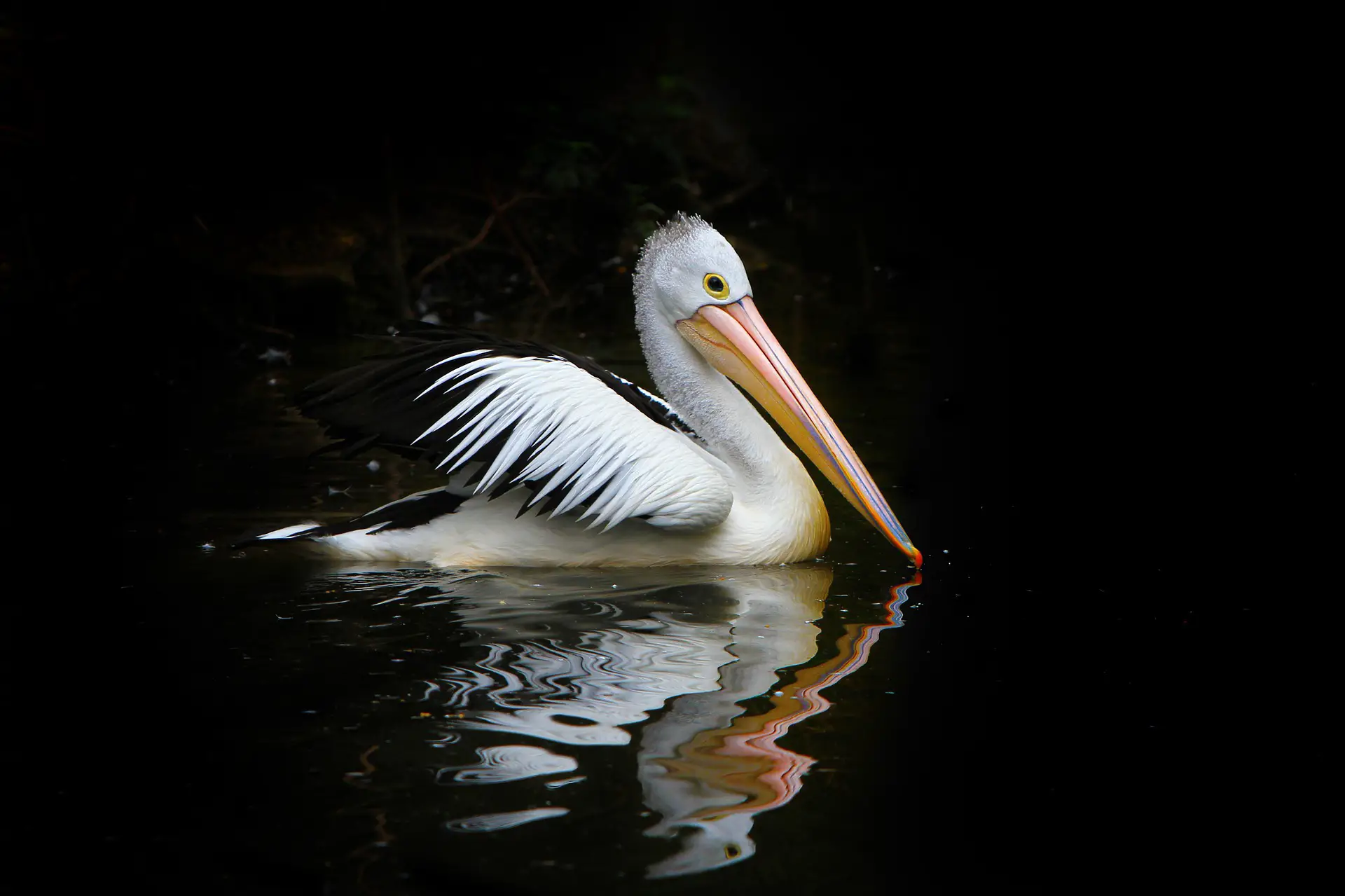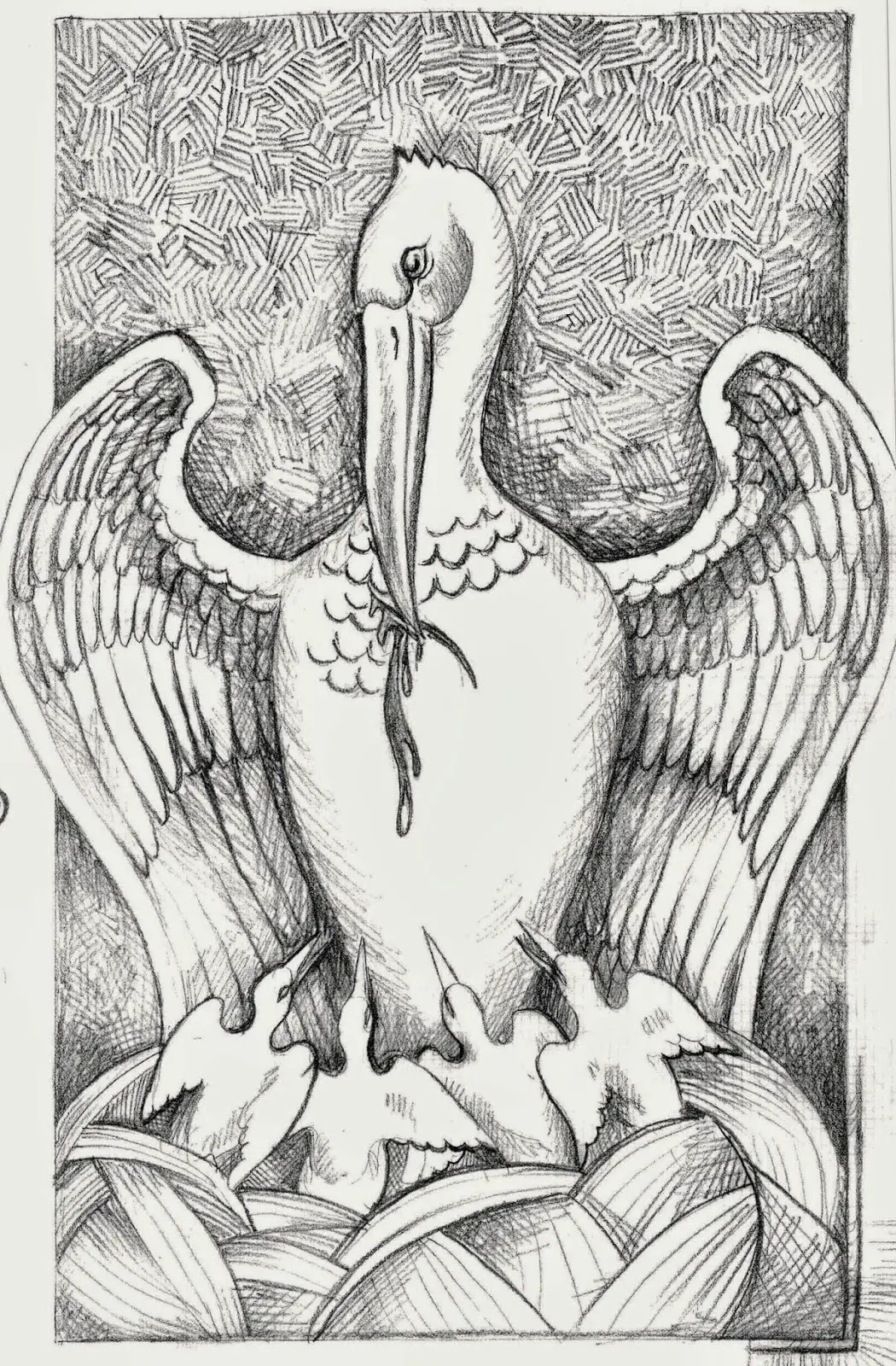The dream world is a mysterious and powerful place. It can be a source of insight and healing, offering answers to our deepest questions and helping us to unlock our spiritual potential. In this article, we will explore the spiritual meaning behind the dream of the pelican, a powerful symbol of transformation, protection, and renewal.
What is a Pelican?
Pelicans are large water birds that belong to the bird family known as Pelecanidae. They are easily identifiable by their large and distinctive bill and long wingspan. Pelicans primarily inhabit coastal areas, but can also be found in inland wetlands and on large lakes.
Pelicans are found all over the world, with some species found in Europe, Africa, Asia, Australia, and North and South America. The most common species are the American White Pelican, the Brown Pelican, and the Dalmatian Pelican.
The bill of the pelican is one of its most distinguishing features. It is large and pouched, allowing it to scoop up fish and other aquatic prey. The bill can hold up to three gallons of water and its gular pouch can hold up to 2.6 gallons.
Pelicans feed mainly on fish, but can also eat other sources of food such as frogs, insects, crustaceans, and even seabirds. They hunt for their food either by diving from the air or by swimming and submerging their large bill.
Subscribe and Get a Free Dream Journal from Us
In addition to their large bill, pelicans have a number of other unique features. They have long, broad wings that can span up to 11 feet. They also have large webbed feet, which they use to propel themselves through the water.
Pelicans are also known for their social behavior. They typically live in large colonies, which can contain hundreds of birds. They also work together to feed, with some birds diving for food while others form a circle around them to protect them from predators.
Overall, pelicans are large and impressive water birds that can be found in wetlands, coasts, and large lakes around the world. They are easily identifiable by their large bill, long wingspan, and social behavior.
Dreams Meaning
Dreams are a reflection of our innermost thoughts, feelings, and desires. A pelican in a dream can symbolize many different things depending on the context of the dream and the dreamer’s individual life experience.
For example, a pelican may represent a long-term goal or wish that the dreamer has had for some time. This could be a career ambition, a relationship goal, or some other type of personal goal. The pelican may symbolize the fulfillment of this goal and the satisfaction of achieving it.
In some cases, a pelican can also indicate a warning. It may be a sign that the dreamer needs to take care of something important in their life. For instance, it could be a warning to take more time to assess a situation before making a decision.
It can also symbolize protection and safety. A pelican in a dream could be an indication that the dreamer is feeling safe and secure in their current environment. This could be a sign that they are in a good place in their life and that they have the right support system around them.
Finally, a pelican may symbolize a spiritual journey or journey of self-discovery. Seeing a pelican in a dream could be an indication that the dreamer is on the right path to achieving their spiritual goals and that they are taking the necessary steps to get there.
| Symbolism | Meaning |
|---|---|
| Long-term goal or wish | Fulfillment of this goal and satisfaction of achieving it |
| Warning | Take more time to assess a situation before making a decision |
| Protection and safety | Feeling safe and secure in one’s current environment |
| Spiritual journey | On the right path to achieving spiritual goals and taking the necessary steps to get there |
White Pelican
The White Pelican (Pelecanus onocrotalus) is a large species of pelican found in parts of Europe, Asia, Africa and the Americas. It is one of the two species of pelican found in North America, the other being the Brown Pelican. The White Pelican is a large bird, with a wingspan of up to 11 feet (3.4 m). Its body is mostly white, with black tips on its wings and tail feathers. Its bill and legs are bright orange-yellow.
White Pelicans are often seen in large groups, either on the shore or in the air. They are usually seen in shallow lagoons, estuaries and marshes, where they search for food. They mostly feed on fish, which they catch in their bill pouch, and also eat amphibians, crustaceans and insects.
The White Pelican is a highly social species, and can often be seen in large flocks. They breed in colonies and are known to be highly protective of their young. They are also known for their elaborate courtship displays, which include synchronized flying and dipping.
White Pelicans face significant threats from human activities, such as hunting, habitat destruction and pollution. They are listed as Near Threatened by the IUCN. Conservation efforts are currently underway to help protect this species.
Seeing a Pelican
Pelicans are majestic and beautiful birds that can be seen in many parts of the world. Seeing a pelican in its natural habitat is an experience that will stay with you forever.
Pelicans are large birds, measuring up to 3.5 feet in length and weighing up to 8.8 pounds. They have large wingspans and can soar through the air with ease. Most pelicans are white with black or gray feathers on their wings and head. They have long, pointed bills with a pouch on the lower mandible.
Pelicans are most commonly seen around lakes, ponds, and other bodies of water. They often dive for fish, submerging their entire body in the water. Pelicans will also hunt for food in the air, catching insects or other prey with their bills.
Pelicans are social birds and can often be seen in groups. They are also very territorial, especially during nesting season. If you are lucky enough to spot a pelican in its natural habitat, you may even be able to observe its courtship rituals.
| Pelican Characteristic | Description |
|---|---|
| Size | Up to 3.5 feet in length and weighing up to 8.8 pounds |
| Appearance | White with black or gray feathers on wings and head |
| Habitat | Lakes, ponds, and other bodies of water |
| Behavior | Dive for fish, hunt for food in air, social, territorial |
Spiritual Meaning
The pelican holds a special place in many spiritual traditions, from Christianity to Buddhism. In Christianity, it is said that the pelican was so devoted to her young that she would pluck her own flesh to feed them. This act of selfless devotion, coupled with the bird’s ability to dive into the depths of the ocean, has come to represent spiritual nourishment and a deep, mystical connection to the divine.
In Buddhist traditions, the pelican is a symbol of purity, justice and wisdom. According to one Buddhist legend, the pelican was once a great warrior who fought so bravely that the gods rewarded him with the ability to fly and pluck fish from the sea. The pelican’s ability to soar high in the sky is said to symbolize the journey of the soul towards enlightenment.
The pelican is also known to symbolize fertility and abundance. According to some Native American tribes, the pelican was considered to be a sacred animal who brought abundance and prosperity to the tribe. The pelican is also seen as a symbol of protection, with its large wingspan providing a sense of safety and security.
No matter the spiritual tradition, the pelican is a bird that is filled with symbolism and meaning. Its selfless devotion and connection to the divine, combined with its ability to soar and bring in abundance, makes the pelican a powerful symbol to carry with us on our spiritual journey.
Symbolism of the Pelican
The pelican is a majestic bird that has been used as a symbol in various cultures for centuries. It is a symbol of self-sacrifice, devotion, and caring. In Christianity, the pelican is said to be a symbol of Christ, as it is believed to feed its young with its own blood.
In ancient Egypt, the pelican was associated with the goddess Isis and her son Horus. It was also believed to be a symbol of regeneration, as it was said to pluck its own breast to feed its young. In Ancient China, the pelican was seen as a symbol of good luck, and in Ancient Greece, it was associated with the gods Apollo and Aphrodite.
In Medieval Europe, the pelican was seen as a symbol of charity and piety, as it was believed to nourish its young with its own blood. Additionally, it was seen as a symbol of rebirth and was often depicted as surrounded by a halo.
The pelican is also seen as a symbol of hospitality and community. In some cultures, the pelican is seen as a symbol of renewal and hope, as it is believed to regenerate its body after death.
In Native American cultures, the pelican is seen as a symbol of protection and guidance. It is also seen as a symbol of strength, courage, and perseverance, as it is believed to be able to survive in harsh conditions.
The pelican is a powerful and meaningful symbol of many cultures and has been used in many different contexts throughout history. Whether as a symbol of self-sacrifice, devotion, good luck, or protection and guidance, the pelican is a powerful symbol of many cultures that continues to be respected and appreciated today.
Ancient Mythology of the Pelican

The pelican has held a special place in the mythology of many cultures throughout history, particularly in ancient Egypt and Greece. In ancient Greece, the pelican was associated with the god of the sun and the sky, Apollo. It was believed that the pelican could bring the sun’s warmth and light to the world, and was a symbol of hope and renewal.
In ancient Egypt, the pelican was associated with the goddess Isis, the mother of the gods. She was believed to have a pelican as her emblem, and was often depicted with a pelican on her head. The pelican was believed to have the power to renew itself each spring, symbolizing the rebirth of life and fertility.
The ancient Romans also revered the pelican, seeing it as a sign of justice and protection. They believed that the pelican had the power to heal the sick and protect them from harm, and they often used the pelican as a symbol of protection on coins.
The pelican has long been considered a symbol of self-sacrifice and charity. In some cultures, the pelican is said to feed its young with its own blood, and this is often used as a metaphor for self-sacrifice and love.
In Christianity, the pelican is sometimes used to symbolize Christ’s sacrificial death and resurrection. The pelican’s ability to renew itself each year is also seen as a metaphor for Christ’s resurrection, and the bird has long been used as a symbol of hope and renewal.
No matter what culture it is found in, the pelican has long been revered as a symbol of renewal, hope, and self-sacrifice. Its powerful presence in the mythology of many ancient cultures speaks to its timeless significance.
The Pelican as a Symbol in Art

The pelican is a bird that has been celebrated in art for centuries. It has long been a symbol of many things, including faith, charity, and renewal. This majestic creature is known for its distinctive features, such as its large bill and long wingspan. In this article, we’ll explore the pelican’s symbolism in art and how it has been used throughout history.
The pelican is an ancient symbol of charity and faith. In medieval times, it was thought to be a symbol of Christ’s sacrifice and redemption. This is due to a legend that states that the pelican would feed its young with its own blood. In Christianity, this was seen as a sign of self-sacrifice and devotion.
The pelican is also a symbol of renewal and regeneration. In some cultures, it is seen as a symbol of the cycle of life and rebirth. This is due to the fact that the pelican is a water bird, and its ability to dive deep into the sea and resurface with food for its young.
The pelican is also a symbol of resurrection in some cultures. In Greek mythology, the pelican was seen as a symbol of resurrection because it was thought to rise from the dead after three days. In other cultures, the pelican is seen as a symbol of love and protection.
In art, the pelican is often depicted with a fish in its bill. The fish symbolizes sustenance, nourishment, and abundance. This is because the pelican is a fisher bird that can provide food for its young. The fish also symbolizes the renewal of life and the cycle of life and death.
The pelican is also a symbol of protection. In some cultures, it is seen as a symbol of a mother’s protection and love. In art, the pelican is often depicted with outstretched wings, as if ready to defend its young.
In summary, the pelican is a powerful symbol in art. It is a symbol of faith, charity, renewal, resurrection, love, protection, and abundance. Through its many symbolic meanings, the pelican has been celebrated in art for centuries and is sure to continue to be a beloved symbol for many more centuries to come.
The Pelican in Christianity

The pelican has been a symbol of Christianity for centuries. The Sacred Heart of Jesus is often depicted with a pelican, signifying His sacrificial, loving nature. The pelican is also a symbol of the Eucharist.
In Christian iconography, the pelican is a symbol of self-sacrifice and of charity. The pelican is seen as a “good Samaritan,” providing nourishment to its own young from its own blood. This self-sacrifice is seen as a parallel to the sacrifice of Jesus, who gave His life for the salvation of mankind.
The pelican is also a symbol of resurrection. The bird is said to have the ability to resurrect its young from the dead by feeding them with its own blood. This is seen to parallel the resurrection of Jesus, who rose from the dead on the third day.
In Christian art, the pelican is often used to symbolize Jesus’ sacrifice and resurrection. It is also used to symbolize charity and selflessness.
| Symbol | Meaning |
|---|---|
| Sacred Heart of Jesus | Sacrificial, loving nature |
| Eucharist | Sacrifice, nourishment |
| Self-sacrifice | Charity, selflessness |
| Resurrection | Rise of Jesus on the third day |
The Pelican in Other Religions
The pelican has long been associated with religious symbolism. As a symbol of divine sacrifice, sacrificial love and service, the pelican has been a part of Christian religious art for centuries. In addition, the pelican has been included in the religious symbolism of other major religions such as Islam and Hinduism.
| Religion | Symbolism |
|---|---|
| Christianity | The pelican has long been associated with divine sacrifice, sacrificial love and service. It is also seen as a symbol of Christ’s self-sacrifice. |
| Islam | The pelican is a symbol of charity and kindness in Islam. It is believed that the bird gives its own life to save its young. |
| Hinduism | In Hinduism, the pelican is a symbol of self-sacrifice. It is believed that the bird gives its own life to save its young. |
The pelican’s association with religious symbolism is not limited to Christianity, Islam, and Hinduism. In many cultures, the pelican is seen as a symbol of grace, protection, and devotion. It is a powerful symbol of maternal love, sacrifice, and selflessness. Because of its long association with religious symbolism, the pelican is often seen as a symbol of hope, faith, and perseverance.
Frequently Asked Questions
1. What is the spiritual meaning of dreaming about a pelican?
Dreaming about a pelican can be a spiritual symbol of protection, nurturing and caring. In some cultures, pelicans are believed to represent the divine feminine, a powerful connection to the emotional realm and wisdom teachings.
Pelicans in dreams may indicate a need for emotional healing and a greater understanding of the self. It can also signify a period of rest and renewal. Here are some spiritual meanings associated with dreaming about a pelican:
- Protection: Pelican dreams may symbolize protection from the universe, suggesting that the dreamer is being watched over and supported.
- Nurturing: Pelican dreams may represent a need for nurturing and care, suggesting that the dreamer should focus on self-care and self-love.
- Divine Feminine: In some cultures, pelicans are associated with the divine feminine, signifying a strong connection to the emotional realm and wisdom teachings.
- Renewal: Pelican dreams may signify a period of rest and renewal, suggesting that the dreamer should take some time to care for themselves and recharge.
2. How can seeing a white pelican in a dream be interpreted?
Dreaming of a white pelican can have several potential interpretations depending on the context of the dream. Generally, a white pelican in a dream can symbolize:
- Purity, innocence, and simplicity
- Being in touch with the divine
- Reconnecting with one’s spiritual self
- A need to let go of negative emotions
- A desire to make a fresh start
- Being open to new opportunities
The interpretation of a white pelican in a dream can also depend on the overall feeling of the dream. If the dream is positive and uplifting, then it could be a sign of hope and renewal. If the dream is negative, then it could be a warning to reflect on one’s current life path and make necessary changes.
Finally, a white pelican in a dream can have a special meaning for different cultures. In Native American mythology, for example, the pelican is a symbol of protection and guidance. To some, it can be a sign of good luck and fortune.
3. Could a dream featuring a pelican be a sign of spiritual guidance?
Dreams featuring pelicans may be signs of spiritual guidance. The pelican symbolizes:
- Selflessness and nurturing.
- Sacrifice and dedication.
- Compassion and caring for those in need.
- Renewal, transformation and spiritual growth.
- Trust in the process of life.
A dream featuring a pelican could be indicating that you are being guided to display more of these qualities in your life. It could also be a sign that you need to look for spiritual guidance and assistance. Or it might be a sign that you have recently been through a time of transformation and renewal.
The message of the dream could also be to look beyond your own needs and be of service to others. Perhaps the dream is prompting you to nurture and care for someone in need or to make a sacrifice for the benefit of others.
Interpreting the meaning of a dream is highly personal and it is important to consider all of the symbols and the context of the dream. If you have had a dream featuring a pelican and want to understand its message, it could be helpful to consult with a dream analyst or spiritual advisor.
4. Is there any symbolism associated with a pelican in a dream?
Dreams involving pelicans are thought to be associated with a variety of symbolism, depending on the context of the dream. Generally, pelicans in dreams are seen as a sign of renewal and fertility. Here are some of the possible meanings associated with a pelican in a dream:
- Family unity: Pelicans are often seen as symbols of family unity, with the bird’s protective nature suggesting a caring and loving relationship between family members.
- Renewal and fertility: Pelicans are also seen as symbols of fertility and renewal, representing the cycle of life and rebirth.
- Protection: Dreaming of a pelican may also signify protection, with the bird often seen as a guardian of the sea.
- Gratitude: Pelicans are sometimes seen as symbols of gratitude, with their willingness to share their meals with others.
5. How can dreaming about a Pelican help a person uncover its spiritual meaning?
- Recall the dream in detail and write it down – taking note of the colors, sights, sounds and emotions.
- Look up the symbolic meanings associated with the pelican and consider how they may apply to the dream.
- Reflect on the context of the dream and consider how it may be related to your own life.
- Think about how the pelican’s behavior in the dream may be a reflection of your own behavior in real life.
- Look up the spiritual meaning of the pelican in various cultures and compare them to your own interpretations.
Conclusion
The spiritual meaning behind dreams featuring pelicans is one of mystery and depth. Pelican dreams often symbolize a need to nurture oneself, seek balance and harmony, and find peace and comfort in the unknown. Pelican dreams are also a reminder to trust in the power of the divine to provide us with the inner guidance and strength we need to move through our lives with grace and courage. As we explore the spiritual symbolism of these majestic birds, we can gain insight into our innermost desires and needs, and gain a better understanding of ourselves and our place in the world.










